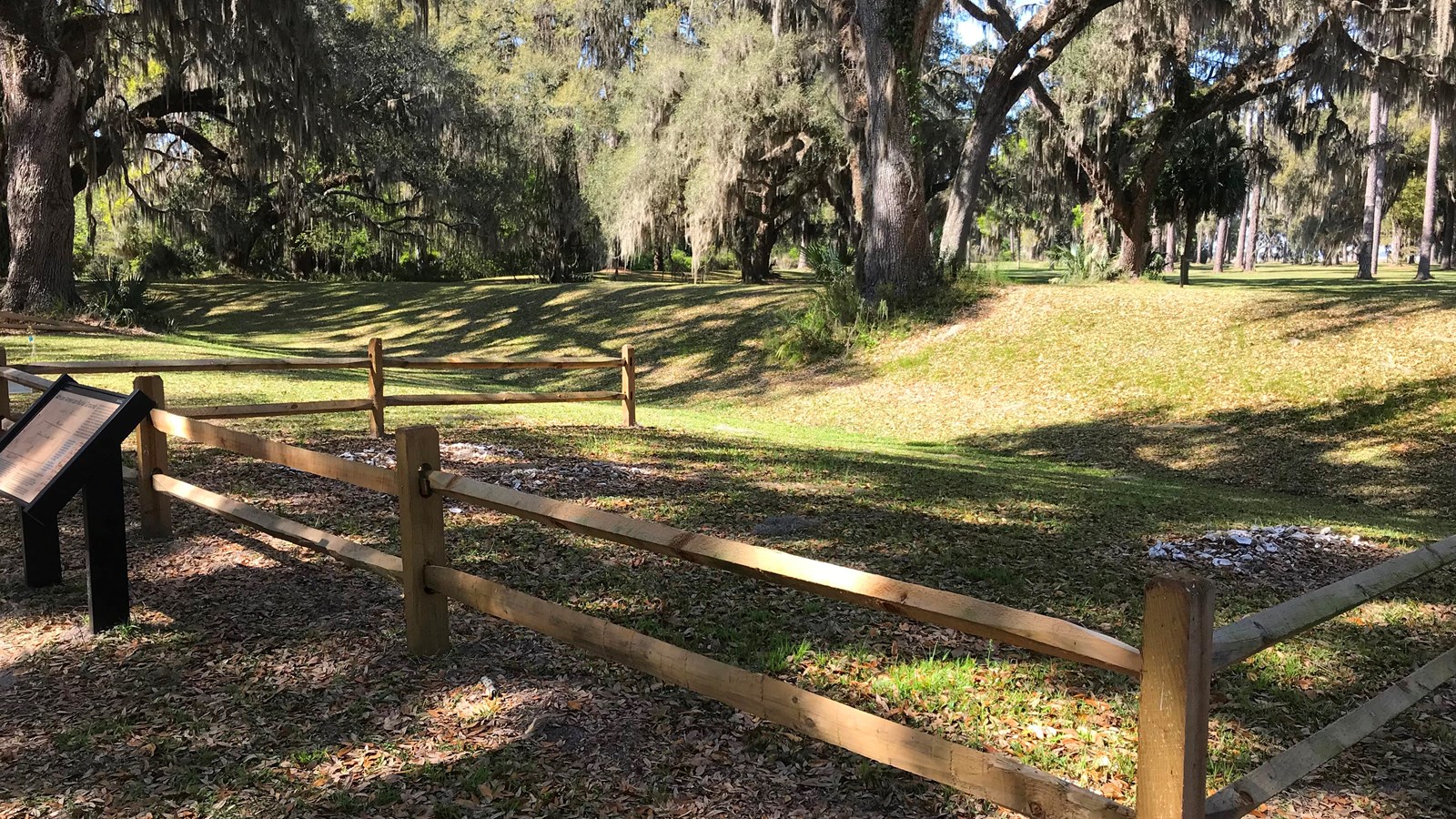Last updated: October 7, 2024
Place
African American Burial Ground

NPS Photo
Quick Facts
Amenities
3 listed
Cellular Signal, Historical/Interpretive Information/Exhibits, Wheelchair Accessible
Located across from the Abbott Monument, visit the African American Burial Ground to learn more about the enslaved people on St. Simons Island and surrounding coastal areas.
The African American Burial Ground is a testament to the enslaved people that were brought to coastal Georgia from Central and West Africa. They brought their cultural customs, languages, and belief systems with them. Enslavement on isolated islands and coastal plantations in the lower Atlantic coast created a unique culture that retained portions of African culture. Descendants of these enslaved people and their traditions are known as the Gullah Geechee.
Following the Revolutionary War, fourteen plantations were established on St. Simons Island, including the land that is now Fort Frederica National Monument. Owners used enslaved people to work the land. Burial sites were typically located on land unsuitable for farming or other commercial pursuits. The burials at Fort Frederica were discovered in the summer of 2019. Research is ongoing to discover more details about the lives of the individuals found here.
The use of seashells, while not unique to Gullah Geechee culture, has been described as a connection to the water that transported them and would hopefully take them back to Africa after death.
The African American Burial Ground is a testament to the enslaved people that were brought to coastal Georgia from Central and West Africa. They brought their cultural customs, languages, and belief systems with them. Enslavement on isolated islands and coastal plantations in the lower Atlantic coast created a unique culture that retained portions of African culture. Descendants of these enslaved people and their traditions are known as the Gullah Geechee.
Following the Revolutionary War, fourteen plantations were established on St. Simons Island, including the land that is now Fort Frederica National Monument. Owners used enslaved people to work the land. Burial sites were typically located on land unsuitable for farming or other commercial pursuits. The burials at Fort Frederica were discovered in the summer of 2019. Research is ongoing to discover more details about the lives of the individuals found here.
The use of seashells, while not unique to Gullah Geechee culture, has been described as a connection to the water that transported them and would hopefully take them back to Africa after death.
